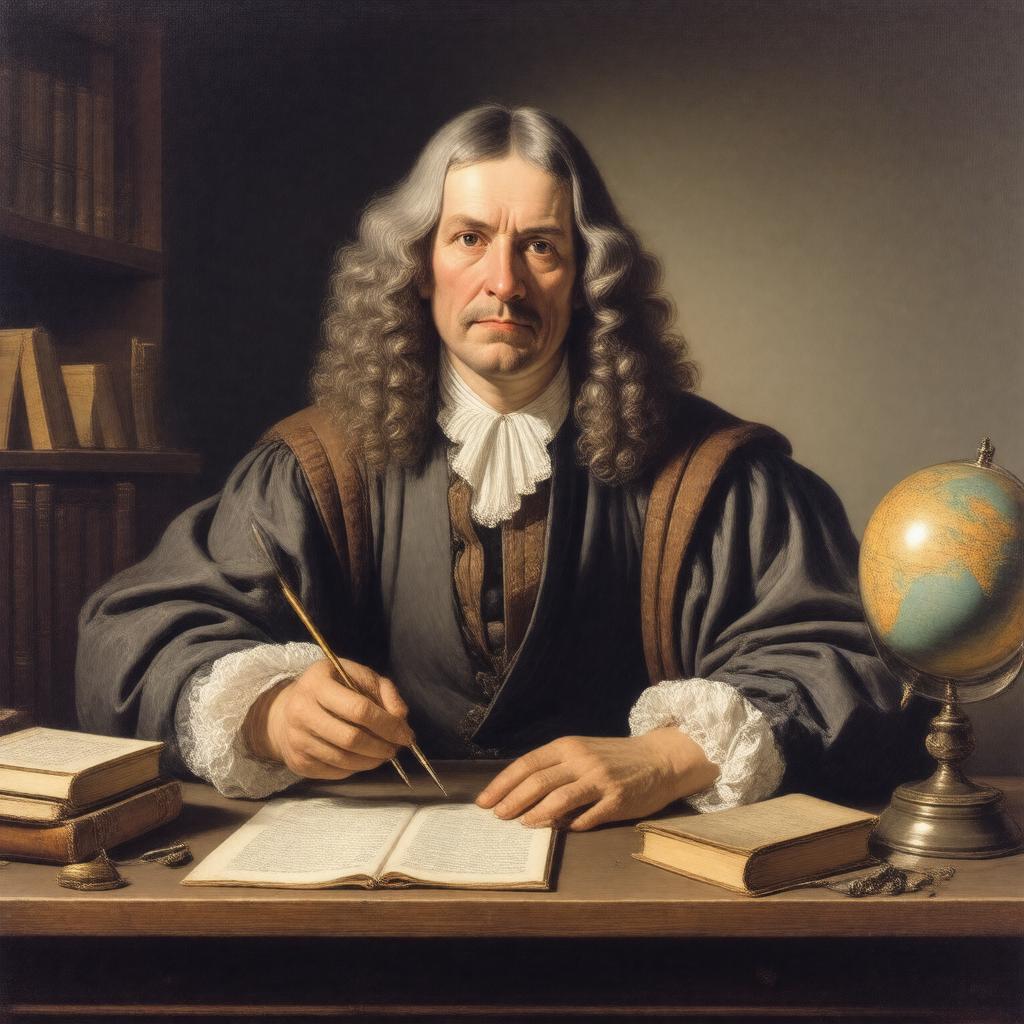Prompt
"Create a realistic portrait of René Descartes, a 17th-century French philosopher, mathematician, and scientist, sitting at a wooden desk with a quill in hand, surrounded by papers, books, and a globe, wearing attire typical of the era, with a thoughtful expression, in a Baroque-style painting."

